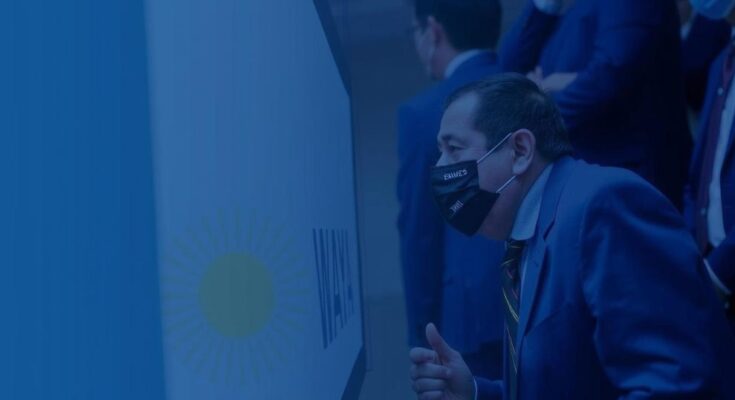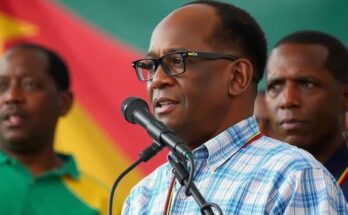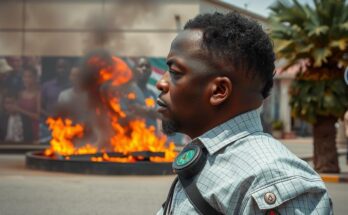Uruguay’s presidential runoff showcased a closely contested race between Álvaro Delgado of the ruling coalition and Yamandú Orsi of the Broad Front. Voter apathy and indecision characterized the campaign, focusing on issues of public safety and economic policy. Both candidates embraced a spirit of cooperation, reflecting the nation’s political landscape that values dialogue over divisiveness.
In the recent presidential election in Uruguay, voters participated in a tightly contested runoff between the conservative candidate Álvaro Delgado and the left-wing challenger Yamandú Orsi. Neither candidate secured a decisive majority in the first round, leading to this closely watched second round. Both candidates focused on critical issues such as economic policies, public safety, and societal welfare, with each attempting to articulate their vision for the future of the country. This election has evolved into a complex interplay of political legacies, campaign strategies, and public sentiment regarding pressing national concerns.
Álvaro Delgado, the candidate from the ruling coalition, campaigned on the success of President Luis Lacalle Pou’s administration, which has received favorable ratings despite previous scandals. His economic agenda emphasizes pro-business policies and continued engagement in international trade agreements, particularly with China. Conversely, Yamandú Orsi, representing the Broad Front, seeks to connect with voters on a more grassroots level, focusing on social reforms and community-driven initiatives. Both candidates strive to address rising crime rates in Uruguay and are keen to communicate their willingness to collaborate with one another post-election.
Historically, Uruguay has maintained a stable democracy and a politically engaged citizenry. The current election reflects broader regional trends, yet it emphasizes a different political dynamic that lacks the populist fervor seen in other countries. Analysts have noted the candidates’ difficulty in inspiring passion among voters, with a significant percentage remaining undecided leading up to the election. This indicates a potential apathy among the electorate, exacerbated by a lack of stark contrasts in campaign platforms compared to previous elections.
The electoral process culminated in a day characterized by civic duty, as citizens engaged in the democratic exercise of voting. Public sentiment revealed a yearning for effective governance, prompting candidates to emphasize unity amid polarization. Observers remarked on the reflective nature of this election, underlining Uruguay’s reputation for stability and the importance of maintaining institutional integrity in the political landscape. With both candidates advocating for a cooperative government, regardless of the outcome, the election symbolizes a commitment to national unity amidst differing political ideologies.
The context of the current election in Uruguay centers on a competitive political landscape where the ruling conservative coalition and a left-leaning opposition are vying for control amidst changing socio-economic conditions. The election follows a previous round where no candidate achieved an outright majority, necessitating a runoff. Issues such as economic growth, social policies, crime, and public welfare dominate the discourse, reflecting the citizens’ anxieties and aspirations. The historical backdrop includes a decade and a half of governance by the left-leaning Broad Front under President José Mujica, which has shaped contemporary political conversations.
In summary, the recent presidential election in Uruguay showcased a highly competitive atmosphere between incumbent Álvaro Delgado and challenger Yamandú Orsi, highlighting critical national issues such as economic policy and public safety. Voter engagement revealed significant indecision, indicating broader electoral trends that differ from historical norms. Ultimately, this election underscores the importance of cooperation in governance as both candidates express intentions to move towards national unity, regardless of the electoral outcome.
Original Source: gazette.com




